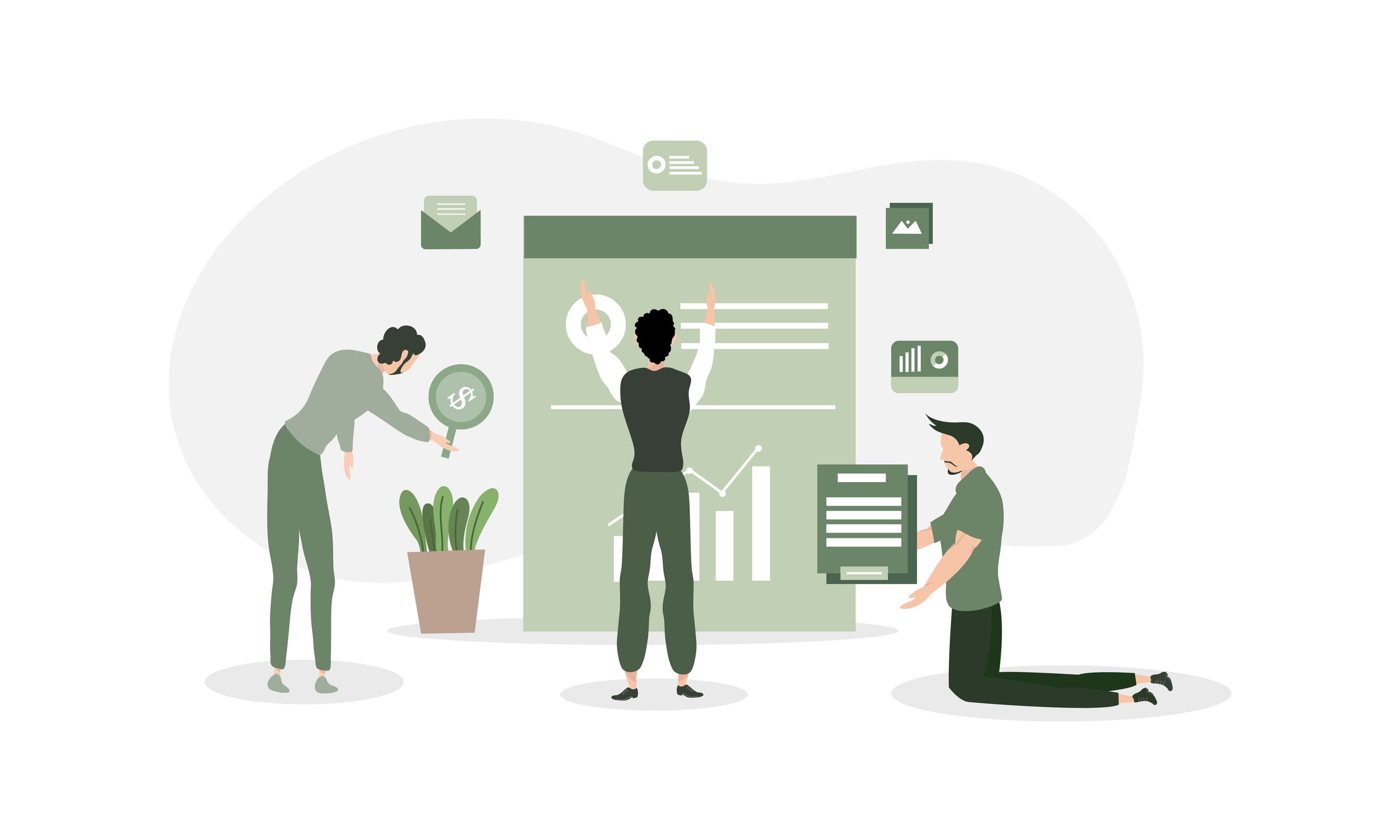Computers for Business - Need to Adapt to It
Second-Hand Computers

 1275
1275 
Computers for Businesses: Choosing the Ultimate Tool for Success
In today's digital age, where innovation and competition go hand in hand, business computers form the foundation for efficient and advanced business operations. Whether it's a small business or an international corporation, the right computer can make the difference between growth and prosperity versus getting stuck in problematic workflows. The market for business computers is steadily growing, with a 4.5% increase in 2023, where the leading trends include emphasis on laptops with dedicated graphics cards, long battery life, and advanced security features.
Leading Trends in Business Computing
The business world is constantly changing, and technology must adapt to the new needs. Business computers have become versatile tools that provide employees with the ability to perform a variety of tasks, ranging from simple document editing to complex big data analysis.
Increase in Demand for Laptops with Dedicated Graphics Cards: One of the prominent trends in the world of business computers is the rising demand for laptops with dedicated graphics cards. Companies in fields such as graphic design, video editing, game development, and software require computers capable of handling heavy graphic demands. For example, graphic designers working on large projects, such as designing complex advertising campaigns, require computers with advanced graphics cards that can manage heavy image processing and visual effects.
Focus on Mobility and Long Battery Life: In light of the shift to hybrid work models, where employees are required to work both from the office and from home, mobility has become one of the central needs of the business world. Laptops with long battery life allow employees to remain productive even outside the traditional workplace. For example, field workers, such as salespeople, sometimes need to conduct meetings and close deals on the go, which is why laptops with long battery life are essential to ensure productivity anytime and anywhere.
Advanced Security Features: Information security has become one of the most important issues for businesses of all sizes, especially when it comes to sensitive data. There is a growing demand for laptops that include advanced security features, such as hardware-level encryption, biometric authentication, and protection through facial recognition or fingerprint scanning. For example, in financial firms or law offices, where maintaining data confidentiality is crucial, laptops with these security features provide maximum protection and reduce the risk of data breaches.
Exciting Future Trends
The technological evolution in the field of business computing doesn't stop here. Several future trends are expected to transform the industry and make the use of business computers more efficient, intelligent, and automated.
Artificial Intelligence (AI) and Machine Learning (ML): AI and ML technologies are already making their way into business computers and are expected to play a central role in the coming years. The ability of computers to analyze vast amounts of data quickly and provide business insights can streamline workflows and empower decision-making within organizations. For example, in CRM systems, the integration of AI allows predicting customer behaviors and offering personalized services to each client.
Transition to Cloud and SaaS: Cloud-based solutions and Software as a Service (SaaS) are changing how computers are used for business. Instead of purchasing and installing software on laptops or desktops, businesses can utilize cloud-based software that offers greater flexibility, cost savings, and the ability to scale easily and quickly based on changing needs. For example, businesses can rent software solutions for project management or marketing without the need for physical installation on every computer.
Internet of Things (IoT): IoT allows connecting physical devices to computer systems, providing remote control and management over business activities. For instance, in smart manufacturing facilities, laptops are connected to IoT systems that can monitor equipment performance in real-time and alert about malfunctions before they occur, thereby optimizing operational processes and preventing production downtime.
Key Factors in Choosing a Business Computer
To ensure a smart investment in business computing, there are several important parameters every company should consider before purchasing a laptop or desktop.
Assessment of Business Requirements: Every business is unique, so it's essential to conduct a comprehensive analysis of the organization's specific needs. For instance, businesses engaged in graphic design will require laptops with strong graphics cards, while project management companies may settle for a computer with a robust processor and multitasking capabilities. Understanding these needs will assist in matching the right computer to organizational requirements.
Hardware Specifications: Every business should choose the right specifications that will support its daily operations. For example, businesses engaged in video editing and graphics require dedicated graphics cards, while those working with complex data analytics need a computer with a powerful processor such as Intel Core i7 or i9, at least 16GB of RAM, and fast SSD storage options.
Software Compatibility: It is crucial to ensure that the operating system on which the computers operate is compatible with the software required for the business. For example, businesses using advanced graphic software often prefer to work with macOS, while others that rely on complex analytical software might find it better to use Windows or Linux systems.
Reliability and Support: Business laptops have a high demand for reliability, so it is advisable to choose brands that are known for their quality. In addition, it is important to ensure that the service provider offers high-level support and comprehensive warranty in case of malfunctions. For example, brands like Lenovo, HP, and Dell are known for their quality solutions for the business market and offer rapid technical support.
Security: Given the growing concern over cyber breaches and data leaks, business laptops must incorporate advanced security features, including encryption, biometric authentication, and regular security updates. For instance, computers with technologies like TPM (Trusted Platform Module) and advanced network security systems provide additional layers of protection against potential threats.
Budget: Choosing a computer for a business requires a balance between cost and performance. It is important to consider not only the initial price of the computer but also additional costs which may include maintenance, updates, and future upgrades. For example, a laptop with long battery life and an extended warranty may last longer and reduce long-term maintenance costs.
Conclusion
Business computers are a strategic investment that can directly impact the organization's success. A thoughtful choice of a laptop or desktop, tailored to business needs, technical specifications, and required security features, will help businesses maximize their potential, remain competitive, and tackle the technological challenges of the future.
By gaining a deep understanding of the leading trends in business computing and considering the key factors when purchasing computers, any business can ensure a stable, reliable, and advanced toolset that supports ongoing growth and offers a competitive advantage in the market.





